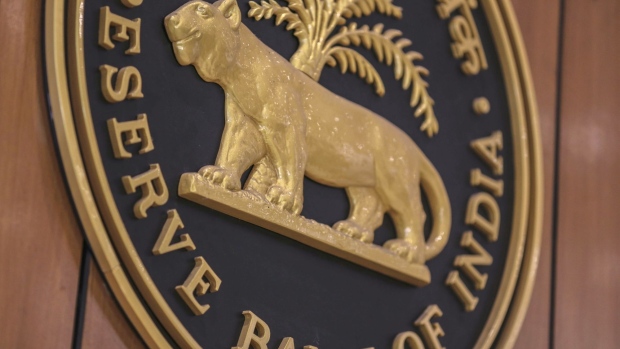Feb 26, 2021
India Central Bank Report Suggests Issuing Debt to Mop Hot Money
, Bloomberg News

(Bloomberg) -- The Reserve Bank of India may consider issuing its own bonds to help soak up a deluge of foreign money into stocks that threatens financial stability, according to a report published by its researchers.
Current laws forbid the RBI from selling its own paper, and budgetary constraints could prevent the government from issuing so-called market stabilization scheme, or MSS, bonds that authorities have used in the past. That’s made it harder for the RBI to navigate what’s known as the Impossible Trinity -- i.e. maintaining an independent monetary policy while also allowing free flows of capital and ensuring a stable currency.
“Sterilized intervention is an effective solution to managing the trilemma in India,” the central bank said in its annual Report on Currency and Finance, published Friday. “Enhancement of sterilization capacity may be necessary to deal with possible surges in capital flows in the future.”
The RBI report recommended further strengthening foreign-exchange reserves, citing the swings in the rupee around the time of the global taper tantrum in 2013. India’s stockpile is already close to $600 billion and exceeds most standard metric requirements.
The rupee extended losses after the report. Indian stocks dropped Friday along with markets across Asia on concerns that a faster global economic recovery may lead to a tapering of monetary policy support and inflows. Michael Patra, the RBI’s deputy governor whose Monetary Policy Department contributed to the report, has in recent days attributed the run up in stocks to possible “irrational exuberance.”
“The precautionary requirements for building adequate buffers against global spillovers is a public policy objective, and not confined to the realm of monetary policy alone,” the report said.
©2021 Bloomberg L.P.